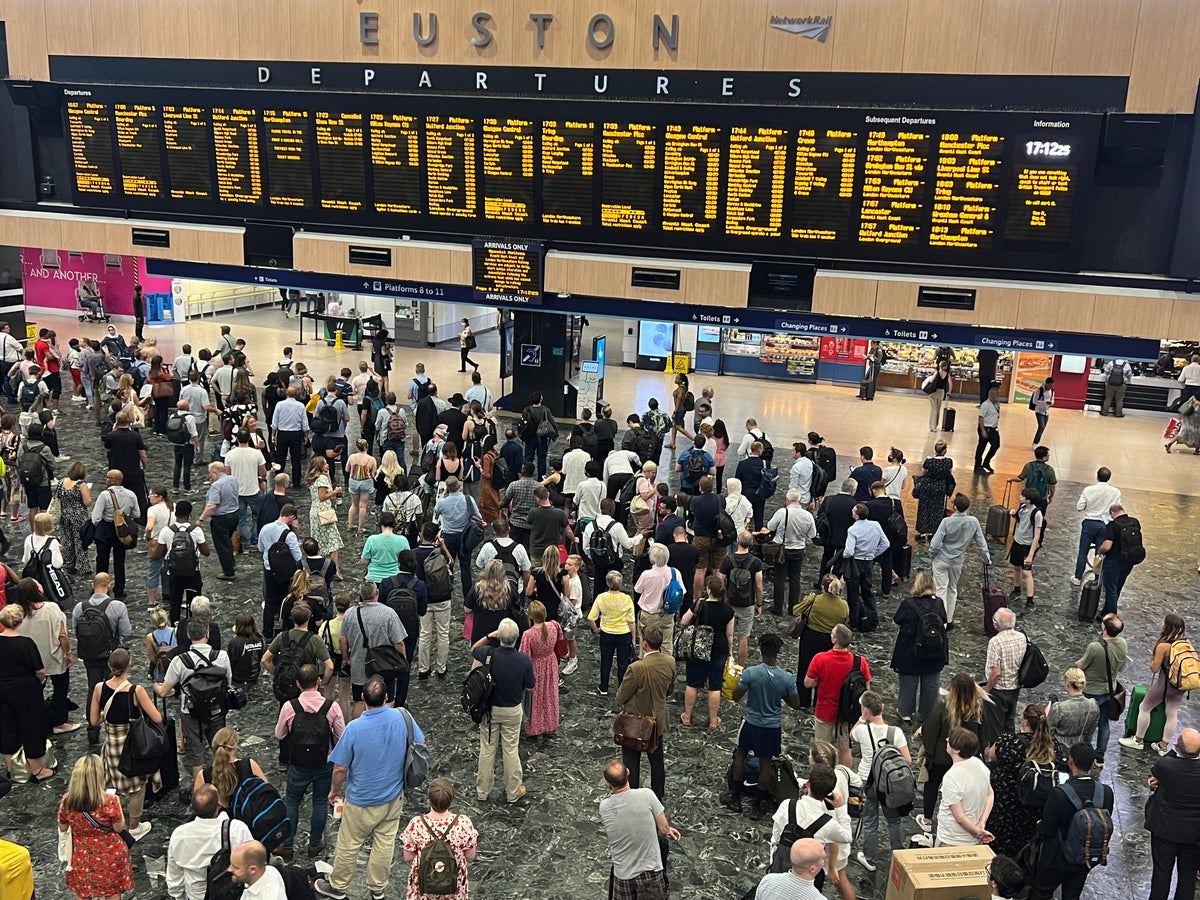
Rail passengers across Britain are experiencing widespread disruption, with technical problems and staff shortage leading to dozens of cancellations and long delays on key intercity lines.
Trains on the East Coast main line between Edinburgh and Newcastle are delayed because of damage to the overhead electric wires in the Morpeth area.
On the West Coast main line, points failures and staff shortage are leading to long delays. A reduced service is operating on Avanti West Coast and some other operators, and an afternoon Manchester-London train left almost an hour late while a driver was sought.
The planned national rail strike – called off on Friday by the RMT union – has led to a final round of train cancellations impacting journeys on Wednesday and Thursday.
From Thursday, a collection of local disputes will cause problems for passengers in a wide range of locations.
Industrial action involving members working for London Underground will severely disrupt travel in the capital on Thursday 10 November.
Transport for London (TfL) warns: “Customers should avoid travelling on the Tube as we expect limited or no service.
“Buses and the Elizabeth line will run but may be extremely busy.
“Disruption will continue into the morning of Friday 11 November, with affected services expected to return to a normal service by mid-morning.”
The RMT general secretary, Mick Lynch, accused the employers of failing to make compromises. He said: “TfL have missed a golden opportunity to make progress in these negotiations and avoid strike action on Thursday.
“Our members are resolute in their determination to see a just settlement to this jobs and pensions dispute.
“And they will continue their industrial campaign for as long as it takes.”
RMT members employed by Network Rail at the Thames Valley Signal Centre will strike on Saturday 19 and Monday 21 November.
Great Western Railway (GWR) says: “A reduced service will operate between 7.30am and 6.30pm on most parts of the GWR network, and the last trains will be earlier than usual.”
The train drivers’ union, Aslef has withdrawn all non-contractual overtime at LNER on the East Coast main line from Sunday 27 November, in a dispute over terms and conditions .
Mick Whelan, Aslef’s general secretary, said: “The company has shown a complete disregard for the agreements which shape our members’ working lives.
“This has ranged from being pestered for favours and asked to work additional hours, even when they have made it clear that they do not wish to work their days off.
“Drivers don’t want to work endless overtime to paper over the cracks in the company’s structures; and they won’t be blamed for issues – the company’s failure to recruit, train, and retain enough drivers to deliver the services they promise passengers they will run – which lie firmly at the door of LNER.”
Warrick Dent, safety and operations director at the state-run train operator, said: “We are disappointed that Aslef has decided to take industrial action.
“We are focused on running reliable services for our customers. We believe that these matters are best resolved between LNER and Aslef through discussion rather than further industrial action which only damages the rail industry.
“We remain fully committed to working collaboratively with ASLEF’s representatives at LNER. In the meantime, we are confident that our contingency plans will keep disruption to LNER services to a minimum.”
Staff at ScotRail are currently refusing overtime as part of a dispute over pay. ScotRail says: “The action short of a strike will see some daily cancellations, as the operation of ScotRail services requires rest day working and overtime as recruitment continues.”
In addition, morale across the rail industry is low, with several train operators reporting higher-than-normal levels of staff sickness.
Avanti West Coast and TransPennine Express are both operating significantly reduced schedules until 10 December.







